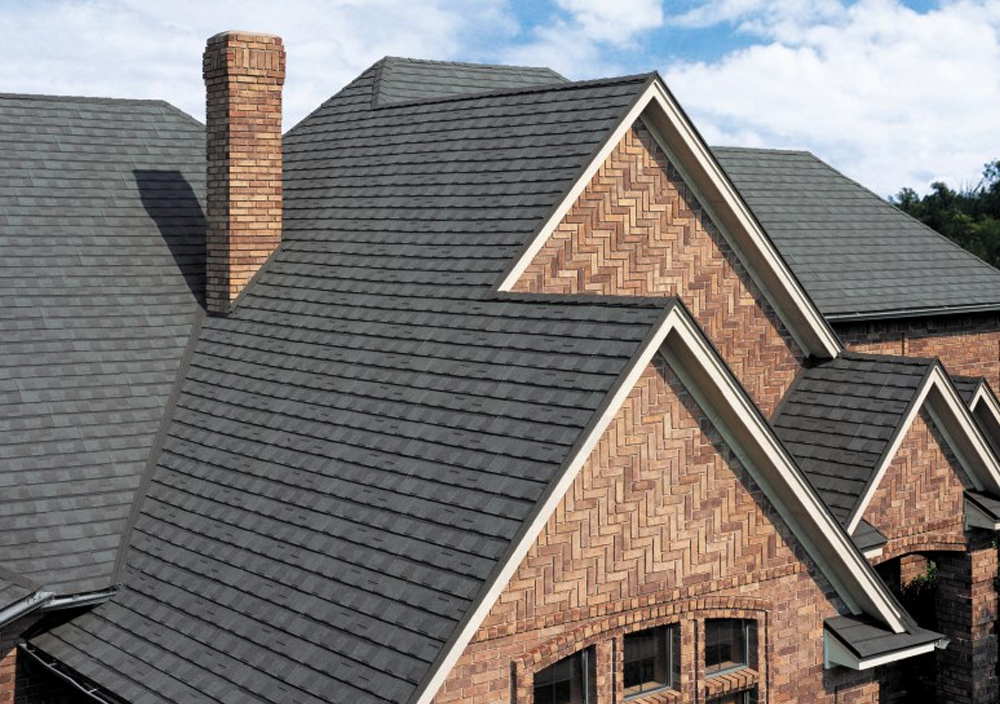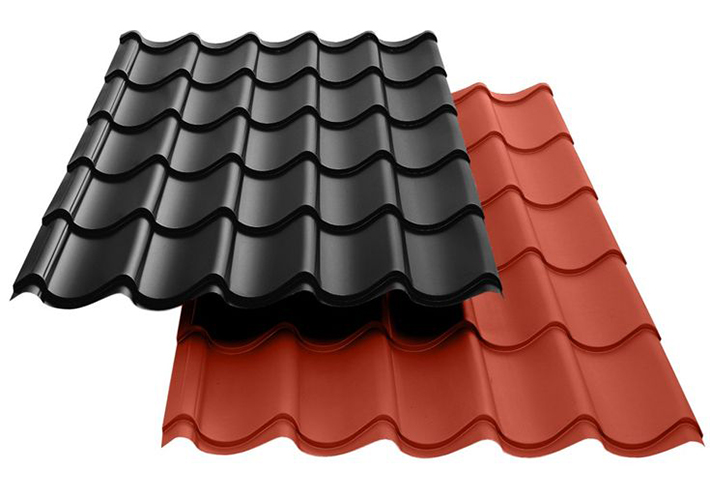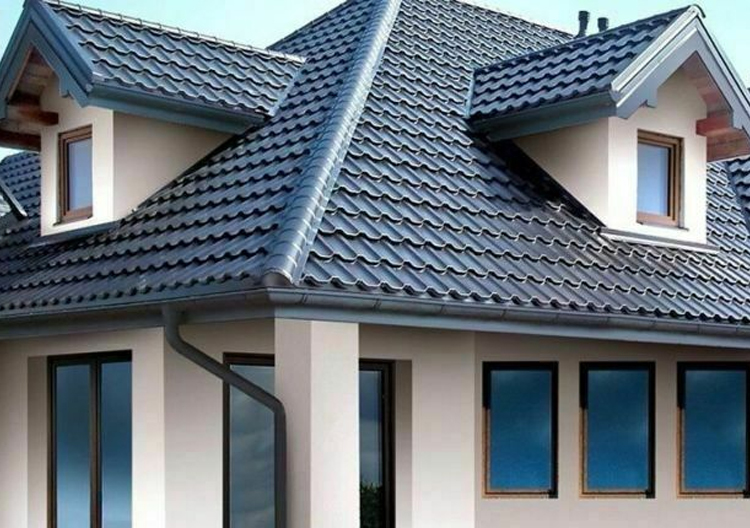
Stone-coated roof tiles are a type of roofing material that combines the aesthetic appeal of traditional roofing materials like clay tiles, slate, or wood shakes with the durability and longevity of metal roofing. These tiles are typically made from galvanized steel or aluminum sheets that are coated with a layer of natural stone chips, such as granite or basalt, and sealed with an acrylic resin.
Here are some key features and benefits of stone-coated roof tiles:
- Durability: Stone-coated roof tiles are highly durable and can withstand harsh weather conditions including high winds, heavy rain, hail, and snow. The metal base provides strength and structural integrity, while the stone chips provide additional protection against impact and UV rays.
- Longevity: These roof tiles have a long lifespan, often lasting 50 years or more with proper maintenance. They are resistant to rust, corrosion, and fading, ensuring that they retain their appearance and functionality over time.
- Aesthetic appeal: Stone-coated roof tiles come in a variety of styles and colors, allowing homeowners to achieve the look of traditional roofing materials while benefiting from the durability of metal. They can enhance the curb appeal of a home and increase its resale value.
- Lightweight: Despite their sturdy construction, stone-coated roof tiles are relatively lightweight compared to traditional roofing materials like clay or concrete tiles. This makes them easier to install and puts less stress on the structure of the building.
- Fire resistance: Stone-coated roof tiles are non-combustible and provide excellent fire resistance, making them a safe choice for homes in fire-prone areas.
- Low maintenance: Once installed, stone-coated roof tiles require minimal maintenance. Occasional cleaning and inspections are usually all that’s needed to keep them in good condition.
- Energy efficiency: The reflective properties of the metal base can help reduce cooling costs by reflecting sunlight and heat away from the building, especially when combined with proper insulation.
Overall, stone-coated roof tiles offer a blend of beauty, durability, and performance that make them a popular choice for homeowners looking for a long-lasting roofing solution. However, they can be more expensive upfront compared to some other roofing materials, but their longevity and low maintenance requirements can make them a cost-effective investment in the long run.

Stone-coated roof tiles offer several advantages and disadvantages. Let’s explore the pros and cons:
Pros:
- Durability: Stone-coated roof tiles are highly durable and can withstand harsh weather conditions, including heavy rain, high winds, hail, and snow. They are resistant to rust, corrosion, and fading, ensuring a long lifespan of typically 50 years or more with proper maintenance.
- Aesthetic Appeal: These tiles come in a variety of styles and colors, mimicking the appearance of traditional roofing materials like clay tiles, slate, or wood shakes. This allows homeowners to achieve the desired aesthetic while benefiting from the durability of metal.
- Fire Resistance: Stone-coated roof tiles are non-combustible and provide excellent fire resistance, making them a safe choice for homes, especially in fire-prone areas.
- Low Maintenance: Once installed, stone-coated roof tiles require minimal maintenance. Periodic inspections and occasional cleaning are usually all that’s needed to keep them in good condition.
- Energy Efficiency: The reflective properties of the metal base can help reduce cooling costs by reflecting sunlight and heat away from the building, especially when combined with proper insulation.
- Lightweight: Despite their sturdy construction, stone-coated roof tiles are relatively lightweight compared to traditional roofing materials like clay or concrete tiles. This makes them easier to install and puts less stress on the structure of the building.
Cons:
- Cost: Stone-coated roof tiles can be more expensive upfront compared to some other roofing materials, such as asphalt shingles. However, their long lifespan and low maintenance requirements can make them a cost-effective investment in the long run.
- Installation Complexity: While stone-coated roof tiles are generally easier to install than some other roofing materials, they still require professional installation. Improper installation can lead to issues such as leaks or premature wear.
- Potential for Denting: Although stone-coated roof tiles are designed to be impact-resistant, they can still be susceptible to denting from heavy hail or falling debris. However, the underlying metal base provides structural integrity and protection.
- Noise: During heavy rain or hail, stone-coated roof tiles can produce more noise compared to some other roofing materials. However, proper insulation and attic space can help mitigate this issue.
- Color Fading: Over time, the color of stone-coated roof tiles may fade due to exposure to sunlight and other environmental factors. However, regular maintenance and cleaning can help preserve their appearance.

Despite these drawbacks, stone-coated roof tiles remain a popular choice for homeowners seeking a durable, aesthetically pleasing roofing solution with long-term benefits.





